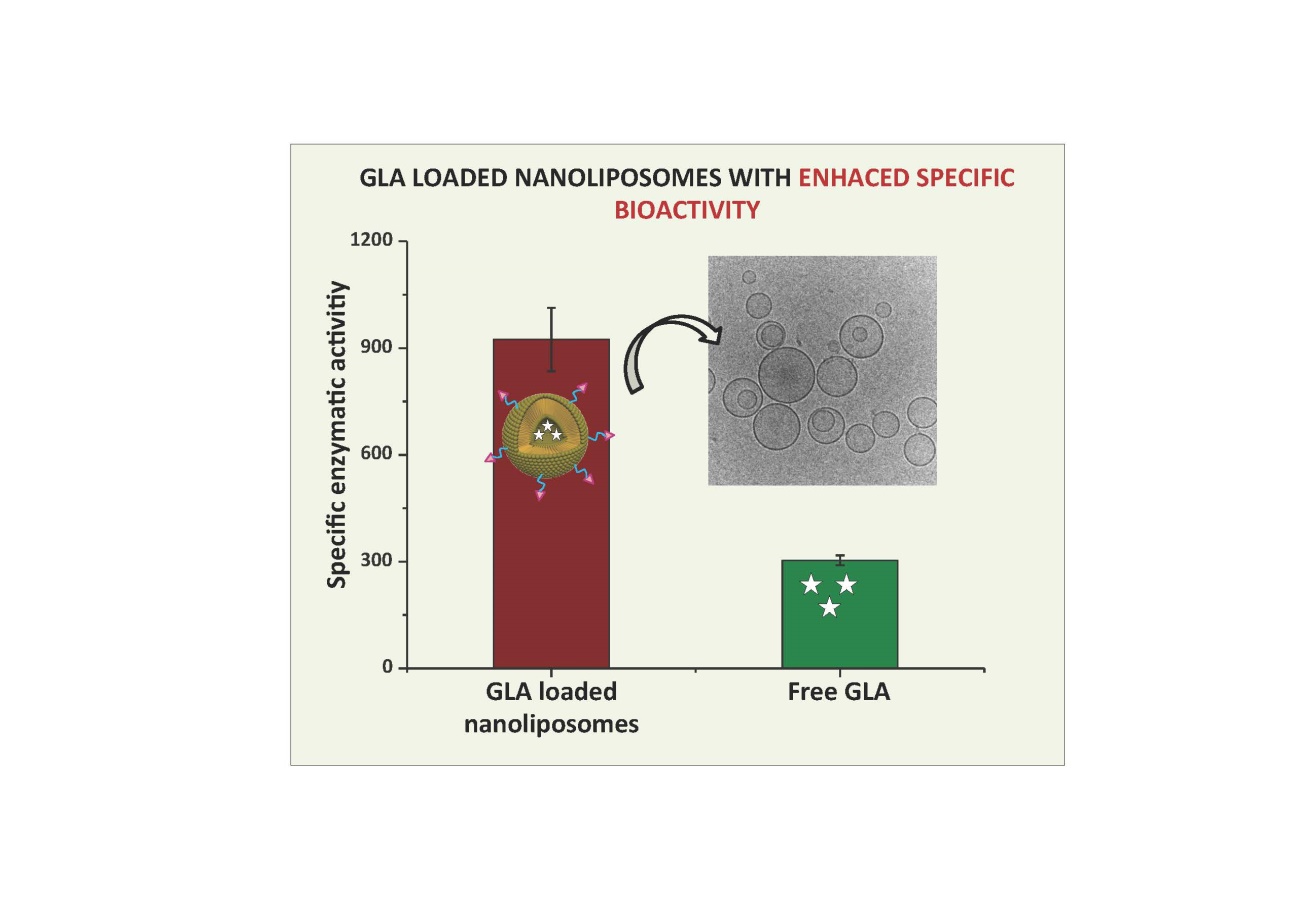“a-Galactosidase A Loaded Nanoliposomes with Enhanced Enzymatic Activity and Intracellular Penetration”
Unit 1 of NANBIOSIS, Protein Production Platform (PPP), Unit 3, Synthesis of Peptides, Unit 20, In Vivo Experimental Platform and Unit 6, Biomaterial Processing and Nanostructuring Unit, have jointly developed the research conducted in relation with a CO2-based methodology for the one-step production of protein-nanoliposome conjugates as bio-active nanomaterials with therapeutic interest. The results have been published in Advanced Healthcare Materials: http://www.ncbi.nlm.nih.gov/pubmed/26890358
“a-Galactosidase A Loaded Nanoliposomes with Enhanced Enzymatic Activity and Intracellular Penetration I. Cabrera, I. Abasolo, J. L. Corchero, E. Elizondo, P. Rivera, E. Moreno, J. Faraudo, S. Sala, D. Bueno, E. González-Mira, M. Rivas, M. Melgarejo, D. Pulido, F. Albericio, M. Royo, A. Villaverde, M. F. García-Parajo, S. Schwartz Jr., N. Ventosa,*, and J. Veciana,*
Lysosomal storage disorders (LSD) are caused by lysosomal dysfunction usually as a consequence of deficiency of a single enzyme required for the metabolism of macromolecules such as lipids, glycoproteins and mucopolysaccharides. For instance, the lack of alpha-Galactosidase A (GLA) activity in Fabry disease patients causes the accumulation of glycosphingolipids in the vasculature leading to multiple organ pathology.
Enzyme replacement therapy (ERT), which is the most common treatment of LSD, exhibits several drawbacks mainly related to the instability and low efficacy of the exogenously administered therapeutic enzyme. In this work, the unprecedented increased enzymatic activity and intracellular penetration achieved by the association of a human recombinant GLA to nanoliposomes functionalized with RGD peptides is reported. Moreover, these new GLA loaded nanoliposomes lead to a higher efficacy in the reduction of the GLA substrate named globotriasylceramide (Gb3) in a cellular model of Fabry disease, than that achieved by the same concentration of the free enzyme. The preparation of these new liposomal formulations by DELOS-SUSP, based on the Depressurization of a CO2-Expanded Liquid Organic Solution, shows the great potential of this CO2-based methodology for the one-step production of protein-nanoliposome conjugates as bioactive nanomaterials with therapeutic interest.









